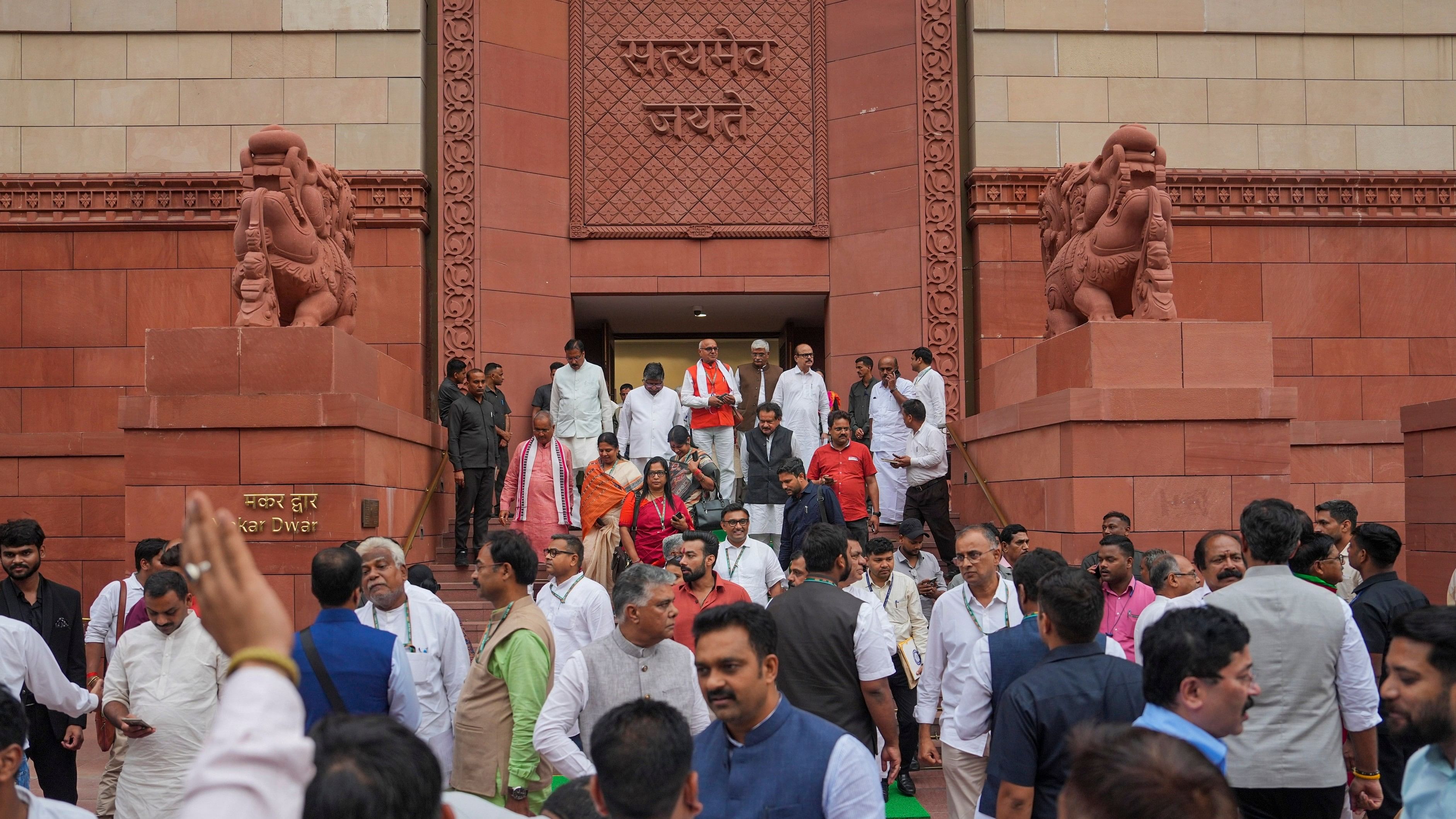
MPs leave during the ongoing Parliament session of 18th Lok Sabha, in New Delhi, Tuesday, July 2, 2024.
PTI
In 1992, Francis Fukuyama joined in the mood of liberal triumphalism at the collapse of communism, with his End of History and the Last Man. Predictably the ‘end of history’ also signified the ‘end of ideology’, a thesis that goes back in the United States to the end of World War II. It was an odd thesis considering that the Cold War was covertly fought between two ideologies: communism and liberalism. The debate gained credence when prominent liberals like Fukuyama hailed the fall of communism.
Ideology, which had once catapulted political revolutions, from the French Revolution (1789) to the Soviet Revolution (1917) to the anti-colonial movement in India, was consigned to the dustbin of history. The end of ideology thesis also meant that there was now no need for a party to clarify what it stood for, how it interpreted society, what values inspired it, and what it planned to do for society. The future of political parties was a technological solution to the immediate problems of humankind: water, electricity, health and education, and all will be well.
The carrier of this ideology in India is the Aam Aadmi Party (AAP). It rode to power in Delhi and then in Punjab on technological solutions to the complex problems of a complex society, i.e. health, and education. Arvind Kejriwal who leads the party is himself a technocrat, and he has brought technocratic values to politics. This is not to suggest that these social goods are not of value. They are, but they cannot be abstracted from the philosophy of a social democratic State: equality, liberty, justice, and fraternity.
Kejriwal initiated his political career by setting up an NGO. Subsequently, he made headlines by organising ‘India against Corruption’. A massive rally was held at Jantar Mantar in New Delhi in 2011. Anna Hazare, who does not know the D of democracy, presided over the event. So-called spiritual leaders sat on the dais, havans were held on the grounds, and everyday people in thousands, along with their children eating ice cream, would visit the site wearing caps that read ‘India Against Corruption’. All ministers and functionaries of the Congress-led United Progressive Alliance (UPA) government were tarred with the brush as corrupt. The dharna arguably led to the defeat of the UPA, and paved the road for Narendra Modi’s victory in 2014.
AAP was formed in 2012, and came to power in Delhi for a short while in 2013 winning 28 seats in the 70-seat assembly. It formed a government in 2015 when it swept polls, and it came back to power in 2020 on a huge mandate. It won Punjab in the 2022 elections winning 92 seats in the assembly. But AAP disappoints.
It has certainly upgraded government schools and provided community health. But it remains a one-man party. Kejriwal has failed to build a party with clear lines of accountability. The flaws in AAP’s organisation became apparent when in the April-May general elections AAP lost all seats in Delhi, and secured only three seats in Punjab.
More is at stake. At the heart of democracy lie civil liberties. The party did not speak a word when students and faculty of the Jawaharlal Nehru University were attacked by goons, when young people were put in jail by the Union government in its crackdown on anti-CAA protests, when communal riots rocked Delhi in February 2020, or when women sat on dharna in Shaheen Bagh in Delhi’s freezing winter for three months.
As far as being apolitical goes, AAP takes the proverbial cake, the answer to all problems is to chant Hanuman Chalisa publicly at temples, and read aloud from sacred texts. If this is not pro-Hindu ideology, what is it? Post-ideological parties are a chimera. Hindutva has little to do with Hinduism as a faith; it is about religion as power. Let us not mistake the matter, religion should not be politicised, it creates havoc. Have we not learnt from the Partition? Its silence on crucial issues speaks of AAP’s complicity in the politicisation of religion.
In short, the end of ideology thesis is reminiscent of Mark Twain’s famous riposte to reports of his death in 1897: ‘Reports of my death are greatly exaggerated.’ The thesis is bad politics, for we no longer know what a party stands for and what it opposes. More significantly, we do not know how it plans to bring together people who hold different religious persuasions into a democratic political community marked by respect and solidarity. This is the problem: the reduction of politics to administration just skims over this problem.
A number of contradictions plague the notion of post-ideology. A highly ideologically organised party, the Bharatiya Janata Party (BJP), came to power riding high on slurs of corruption cast on UPA-II in 2014. The term corruption is completely apolitical. Some of the most non-corrupt regimes in the contemporary world are police States. Politics is always contestation; who can contest corruption which should be a part of accountable politics? The other apolitical term, incidentally, is governance. It is an attribute of democratic government, not its substitute. Tyrants can practice good governance. These apolitical terms strip politics of its values, particularly democracy and participation. AAP should stop being an apolitical service provider, and clarify what it stands for.
(The writer is former professor of
political science, Delhi University)